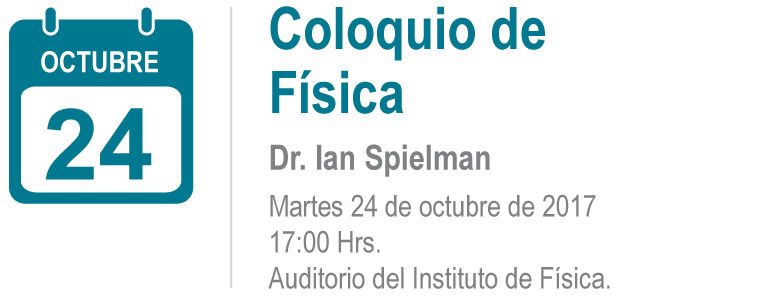
Resumen:
Here I present our experimental work creating a synthetic magnetic field in a Bose-Einstein condensate (BEC) generated by an abelian vector potential and discuss the connection between spin-orbit coupling and non-abelian vector potentials.
Ultra cold atoms are remarkable systems with a truly unprecedented level of experimental control and one application of this control is to engineer many body hamiltonians usually associated with condensed matter physics. To date this engineering has focused mostly on the real-space potential that the atoms experience, for example, multiple-well traps, optical lattice potentials, or even potentials depending on the internal state of the atom.
We couple the internal states of rubidium 87 via a momentum-selective Raman transition and load our BEC into the resulting adiabatic eigenstates. In agreement with theory, we observe that above a critical coupling strength our BEC acts as a charged Bose gas in the presence of a conventional vector potential. Below this critical Raman coupling, the system has well defined spin degrees of freedom and acts like a spin-1/2 Bose gas with spin-orbit coupling.










